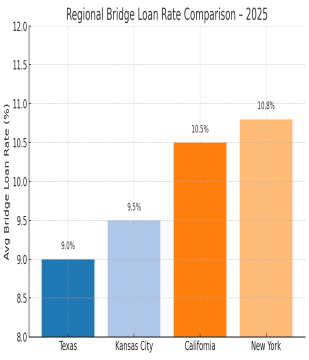Understanding Stocks vs Bonds and Their Affect on Commercial Real Estate

Terrydale Capital
Jun 28, 2024 8 Min read
 Learn
Learn
Investing in the financial markets often involves choosing between stocks and bonds. Both serve as fundamental components of investment portfolios but differ significantly in their characteristics and impacts, particularly on commercial real estate. This blog will delve into what stocks and bonds are, their differences, and how their performance can influence the commercial real estate sector.
What Are Stocks?
Stocks, also known as equities, represent ownership in a company. When you buy a stock, you purchase a share in the company's profits and assets. Stockholders can earn returns through dividends (periodic payments based on the company's earnings) and capital appreciation (the increase in the stock's price over time).
Key Features of Stocks:
- Ownership: Stocks give investors partial ownership of the company.
- Dividends: Companies may distribute a portion of their earnings to shareholders.
- Capital Gains: Investors can profit from the increase in stock prices.
- Risk: Stocks are generally considered riskier than bonds due to market volatility and the company's performance.
- Liquidity: Stocks are usually more liquid, meaning they can be quickly bought or sold in the market.
What Are Bonds?
Bonds are debt securities issued by corporations, municipalities, or governments to raise capital. When you buy a bond, you are essentially lending money to the issuer in exchange for periodic interest payments and the return of the bond's face value at maturity.
Key Features of Bonds:
- Debt Instrument: Bonds are loans made by investors to the bond issuer.
- Interest Payments: Bondholders receive regular interest payments, known as coupons.
- Principal Repayment: The bond's face value is repaid at the end of the term (maturity date).
- Risk: Bonds are generally less risky than stocks, especially government and high-grade corporate bonds.
- Fixed Income: Bonds provide predictable income through regular interest payments.
Key Differences Between Stocks and Bonds
- Ownership vs. Debt: Stocks represent ownership in a company, whereas bonds are a form of debt owed by the issuer to the bondholder.
- Risk and Return: Stocks typically offer higher potential returns but come with greater risk. Bonds provide more stable returns with lower risk.
- Income Type: Stock returns come from dividends and capital gains, while bonds provide fixed interest payments.
- Market Behavior: Stock prices are influenced by company performance and market conditions, whereas bond prices are affected by interest rates and credit ratings.
- Priority in Bankruptcy: In case of company bankruptcy, bondholders are paid before stockholders.
How Stocks and Bonds Performance Impacts Commercial Real Estate
The performance of stocks and bonds can significantly influence the commercial real estate market in several ways:
1. Investor Confidence and Capital Flows
- Strong Stock Market: When stock markets perform well, investor confidence increases, leading to higher spending and investment. This can result in more capital flowing into commercial real estate as investors seek to diversify their portfolios.
- Weak Stock Market: A declining stock market can lead to reduced investor confidence, causing investors to pull back from riskier assets, including commercial real estate. This can decrease demand and slow down property transactions.
2. Interest Rates and Financing Costs
- Bond Market Influence: Bond prices and interest rates are inversely related. When bond prices fall, interest rates rise. Higher interest rates can increase the cost of borrowing for commercial real estate projects, leading to reduced investment and slower growth.
- Cost of Capital: Lower interest rates, often resulting from strong bond market performance, can reduce the cost of financing commercial real estate projects. This can stimulate investment and development in the sector.
3. Economic Conditions and Tenant Demand
- Economic Growth: A robust stock market often indicates strong economic growth, leading to higher demand for commercial properties as businesses expand. This can drive up rental rates and property values.
- Economic Downturn: Conversely, a struggling stock market can signal economic downturns, reducing demand for commercial spaces as businesses contract or close. This can lead to higher vacancy rates and downward pressure on rents.
4. Inflation and Asset Value
- Inflation Hedge: Commercial real estate is often seen as a hedge against inflation. When inflation is high, typically driven by strong economic conditions and stock market performance, property values and rents can rise, protecting investors' purchasing power.
- Deflationary Pressures: In periods of low inflation or deflation, often associated with weak economic performance and bond market strength, commercial real estate values may stagnate or decline.
Conclusion
Understanding the fundamental differences between stocks and bonds is crucial for investors seeking to diversify their portfolios and manage risk. The performance of these financial instruments can have far-reaching effects on the commercial real estate market, influencing everything from capital flows and financing costs to tenant demand and property values. By staying informed about market conditions and their potential impacts, investors can make more strategic decisions in the dynamic landscape of commercial real estate.
When it comes to navigating the complexities of the commercial real estate market, it is beneficial to have the right team behind you. At Terrydale Capital, we host a wealth of comprehensive knowledge from keeping our thumbs on the market as well as industry connections to assist any investor. Contact us today.
Partner With Terrydale Capital for Your Debt Financing Needs
When it comes to debt financing, understanding the right timing, process, and options is crucial. At Terrydale Capital, we provide a comprehensive range of commercial loan solutions tailored to meet your business's unique needs.

































































































































































































































































































































































